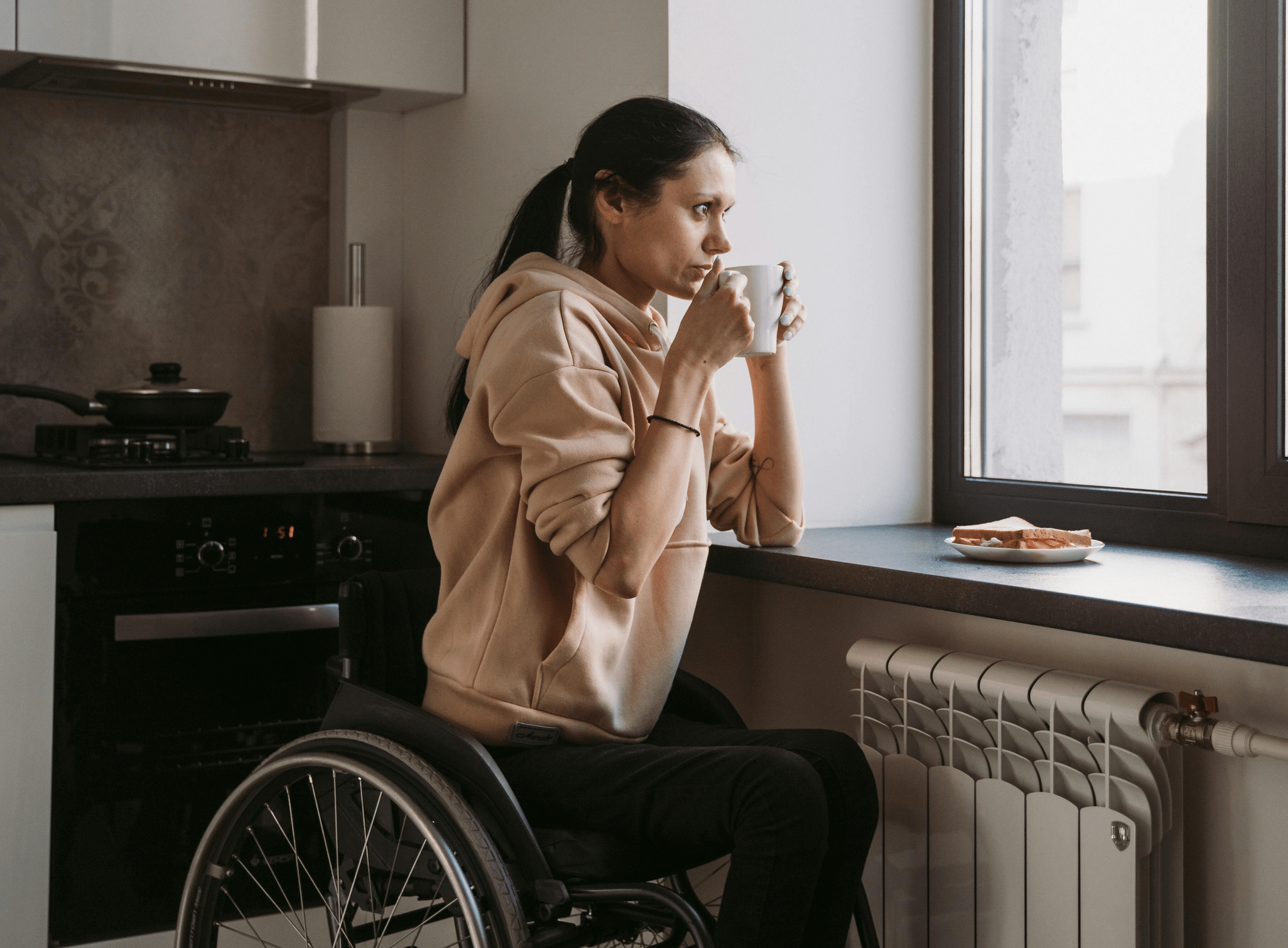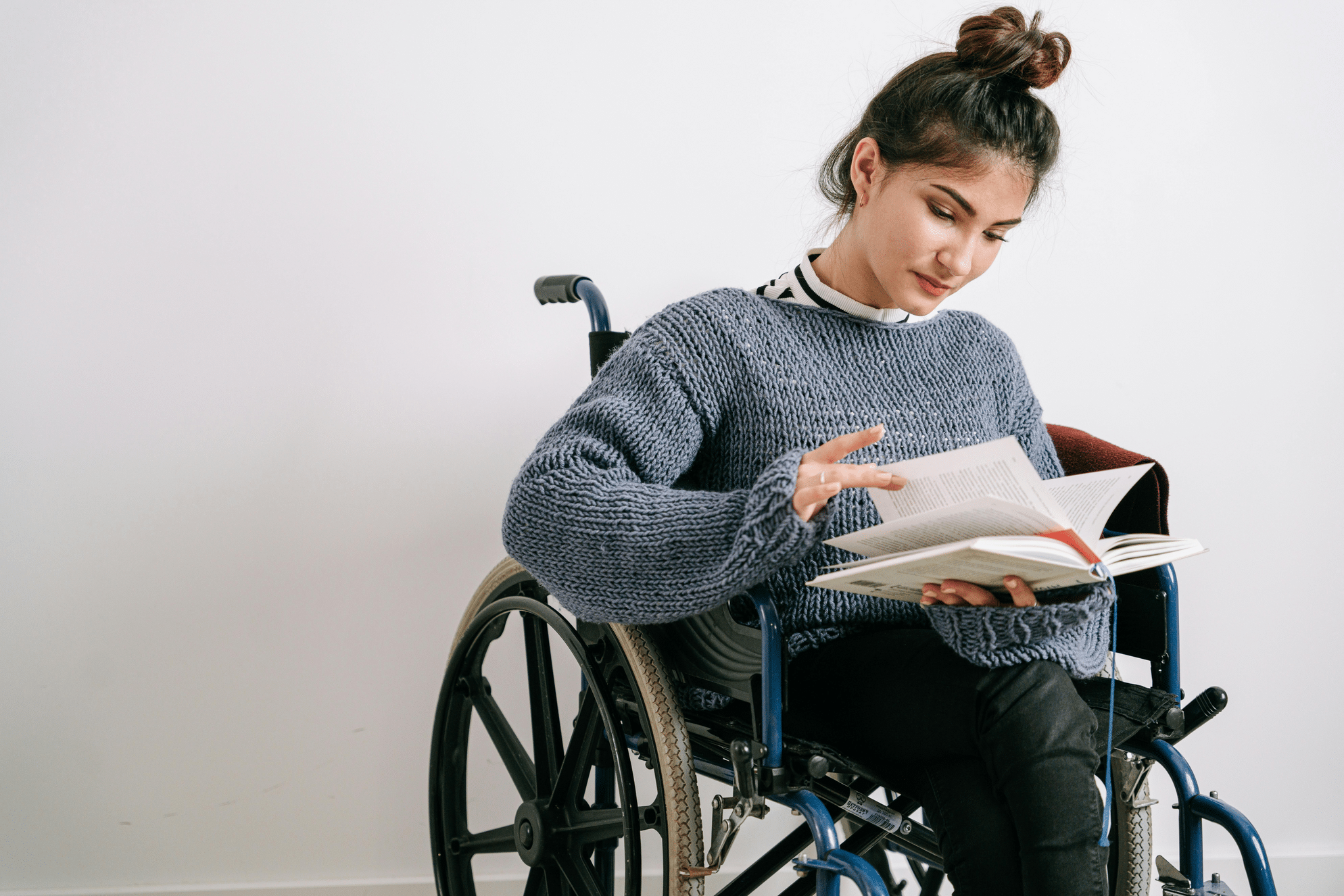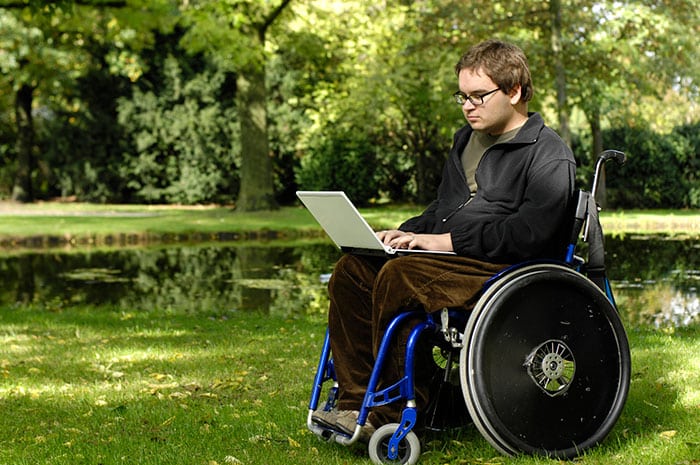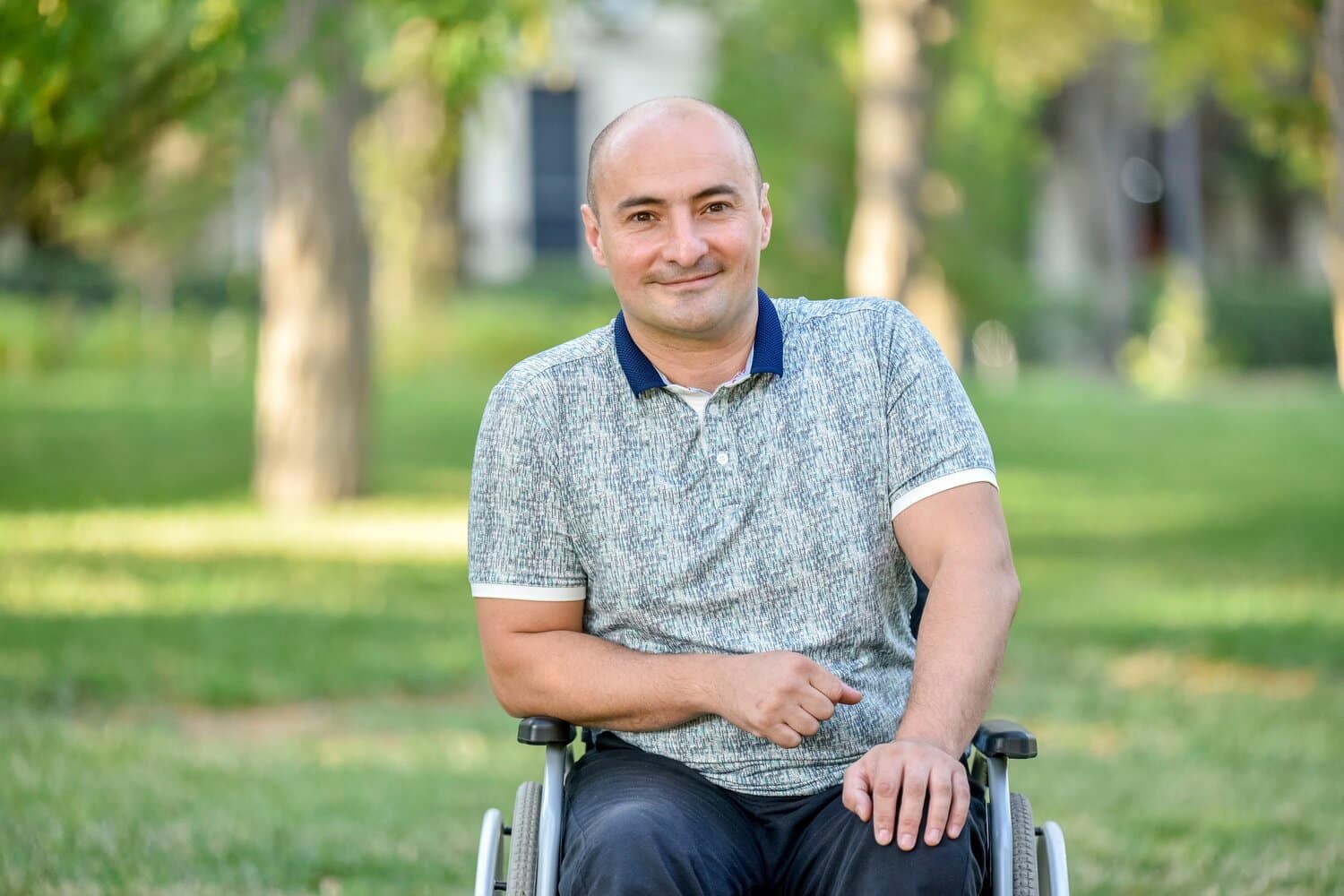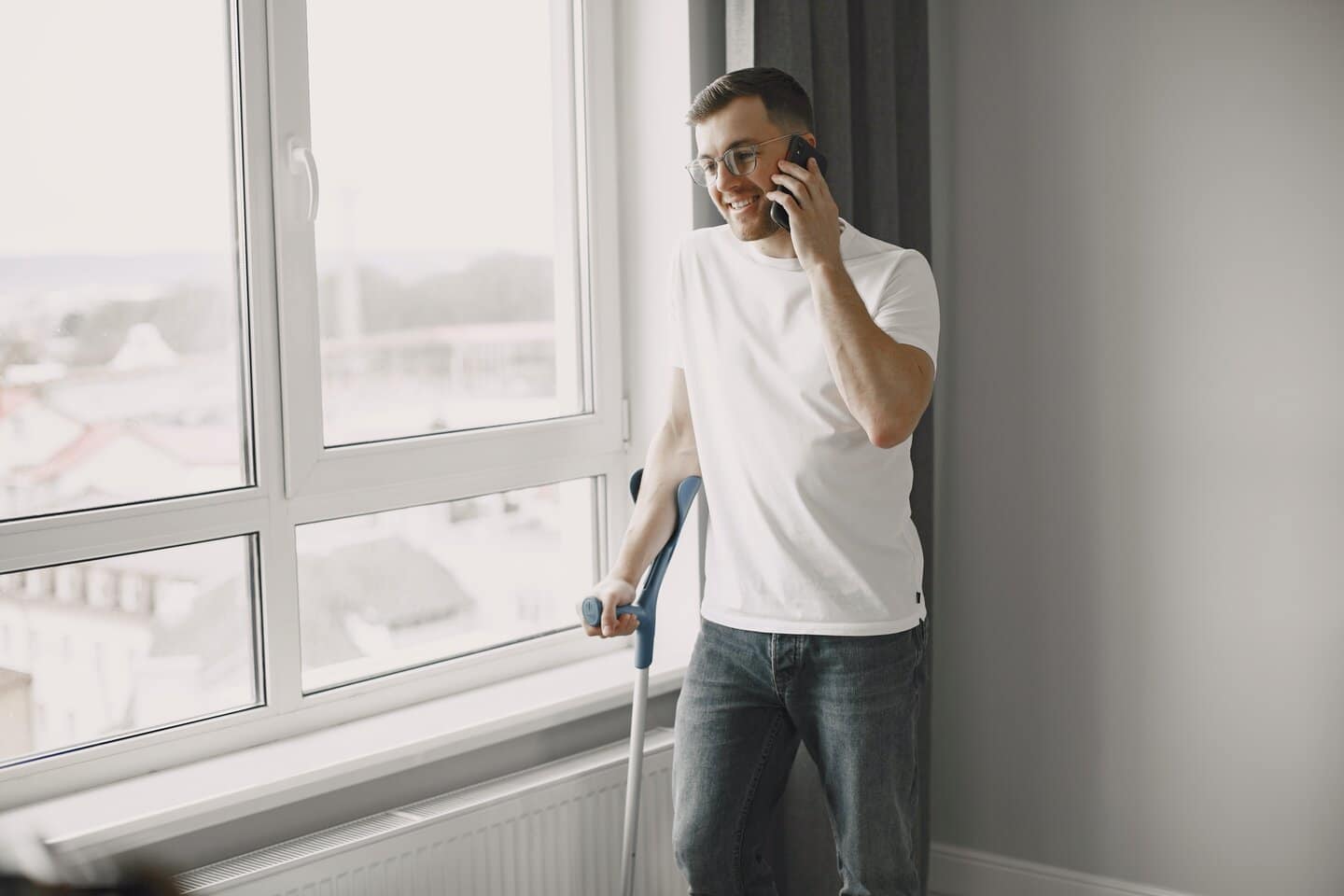Specialist Spina Bifida Mental Health Counselling Services


Specialist
We believe that there are no boundaries to progress and success. We support & acknowledge all backgrounds, identities, and walks of life in treatment.
Our counsellors provide an environment for you to engage in valuable interpersonal work while developing practical strategies to use daily.
We strive for a warm, inviting, and collaborative community designed to help you work through the barriers that hold you back while making positive changes to live your best life.
Our Counselling & Psychotherapies start from the baseline & contributing factors of living with spina bifida are creating the issues you may be facing.
We know that most people we see do not have mental health conditions; they have emotional stressors & issues subjected to stigma, social isolation, visible & invisible discrimination, limited opportunities and relationship problems in general.
These are vital issues many people with spina bifida face daily.
We all need a listening ear and a level of empathy from time to time for when life throws at us its testing challenges.
So, if you’re struggling in any way right now, please get in touch with us.

Your Service
⇒ Specialist Acreditated & Registered Psycologists & Psychotherapists.
⇒ Our Counselling comes from Lived Experiences, not a Text Book or Training Course.
⇒ Video & telephone counselling to ensure you can connect with specialists wherever you live.
⇒ Culturally accessible counselling with quicker recovery rates than therapy with a counsellor who does not understand SB.
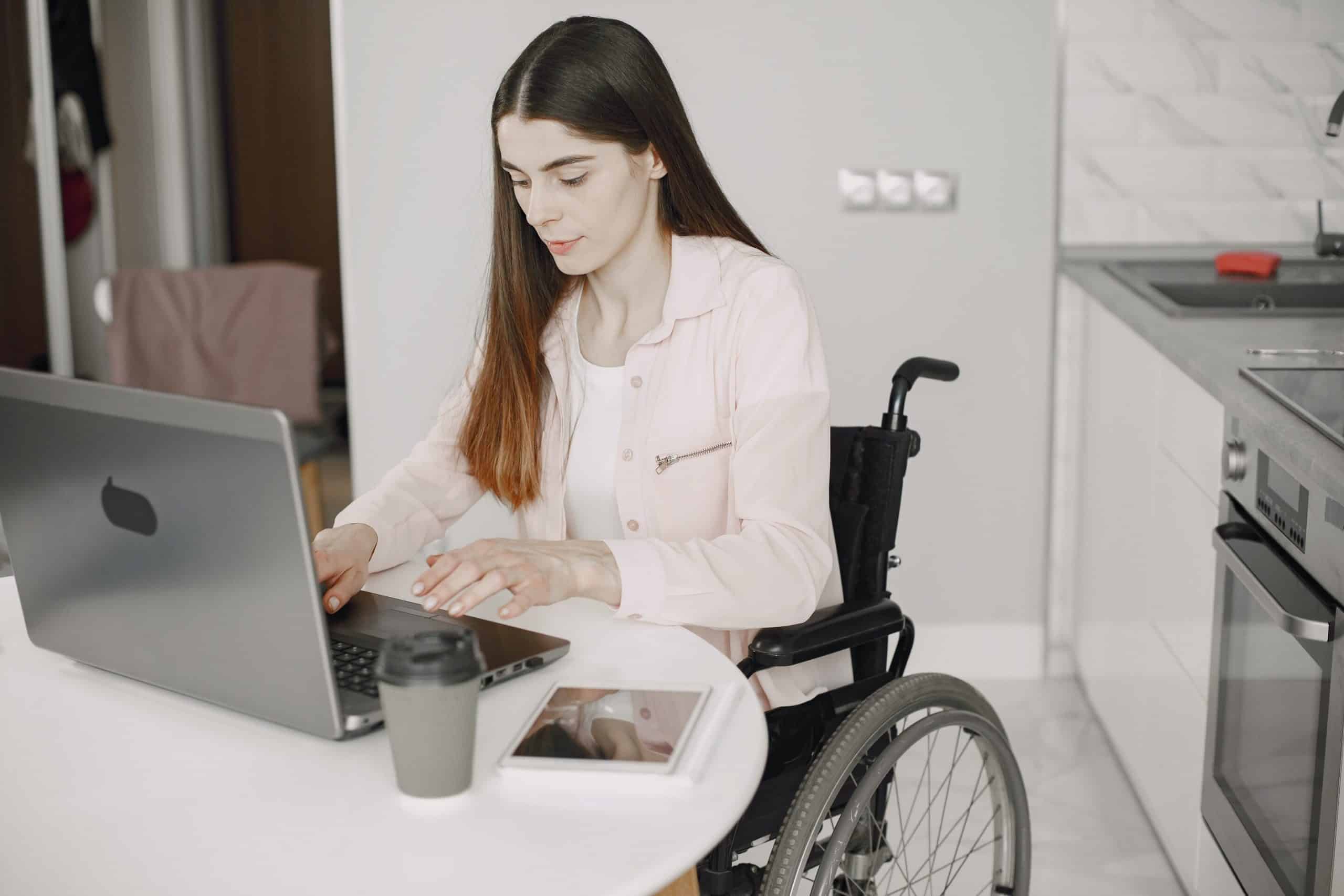
Understanding
One of the most important aspects of counselling & psychotherapy is the relationship you form with your therapist. Using therapists with Spina Bifida will help you experience a sense of belonging and connection, as they will have similar challenges.
Spina Bifida can affect how you live daily and how you see yourself and relate to others. You might feel worried about the future and not burden others with your feelings.
The emotional impact of SB can make you feel sad, frightened, confused, worried, angry, & overwhelmed.
Spina Bifida counselling with a specialist who understands SB moves you towards a more deeply satisfying, rewarding, and joyful life, no matter your struggles, challenges, or diagnoses.

Support?
We support people, not with the labels of depression or anxiety; our work is helping clients with life’s difficulties that can be the platform for mental health issues.
We help with the following:
- Coping with the rollercoaster of emotions
- Exploring your feelings & thoughts
- Understanding of how difficulties may have developed
- Management of pain
- Dealing with different stresses
- Concerns about anger and how it’s affecting those around you
- Dealing with distress and trauma
- Concerns about relationships
- Setting realistic & achievable goals
We understand the secondary conditions, including:
- Anxieties & Stress
- Depression
- Dissociation
- Trauma
- Emotional Regulation
- Sexual Functions
- Suicidal Thoughts
- Personality Changes

Questions?
How do we support you?
Online Sessions – we offer video sessions; why?
Few counsellors specialise in supporting people with spina bifida. By providing video sessions, we can help you wherever you live.
What to expect? – your counsellor will understand the issues you may be facing; each person is different, but common themes are discussed in therapy.
Therapy – we usually offer counselling that supports resolutions of your current issues and future planning. Some people prefer a longer, more profound form of psychotherapy.
We support both modes of counselling.
When can I start counselling? – if you are paying for sessions, sessions generally start within a fortnight.
If you wanted NHS funding, we would make an application following a free assessment session.
No NHS funding application is guaranteed to be successful, and the timeframe is normally between 8 and 12 weeks.
We pride ourselves on providing safe and compassionate spina bifida counselling where all individuals, regardless of cultural, gender or sexual identity, can receive equitable mental health services and support.
Conditions?
Living with Spina bifida can be emotionally stressful for some individuals. Spina bifida is a congenital birth defect that affects the spine and can result in a range of physical and neurological impairments. Depending on the severity of the condition, individuals may experience mobility difficulties, bowel and bladder problems, and other health issues that can impact their daily lives.
The emotional stress of living with Spina bifida can stem from a variety of factors, including:
Stigma and discrimination: Some individuals with Spina bifida may experience stigma or discrimination from others who are not familiar with the condition. This can lead to feelings of isolation, shame, or anxiety.
Physical limitations: The physical limitations associated with Spina bifida may make it difficult for individuals to participate in activities that they enjoy, which can be frustrating and upsetting.
Chronic pain: Many individuals with Spina bifida experience chronic pain, which can be both physically and emotionally draining.
Anxiety and depression: Living with a chronic health condition can increase the risk of developing anxiety and depression. Individuals with Spina bifida may experience feelings of sadness, hopelessness, or worthlessness.
Social isolation: The physical limitations associated with Spina bifida may make it difficult for individuals to engage in social activities, which can lead to feelings of loneliness or isolation.
It’s important to recognise that everyone’s experience with Spina bifida is unique, and not all individuals will experience the same level of emotional stress.
Knowledgable?
As a specialist service, we support people with counsellors who have Spina Bifida and understand the key components of:
• Closed Neural Tube Defects
• Occulta
• Meningocele
• Myelomeningocele
Our counsellors provide an environment for you to engage in valuable interpersonal work while developing practical strategies to use in your daily life.
We strive for a warm, inviting, and collaborative community designed to help you work through the barriers that hold you back while making positive changes to live your best life.
Session fees?
We offer privately-paid services from age 14.
Private pay clients are able to choose the focus, duration, and frequency of therapy.
You are even allowed to choose the length of sessions.
You can start your Counselling almost immediately.
There are no waiting lists or reports being sent to GPs. It’s Confidential.
You can start by paying privately for the immediate start & in the background, we can submit an NHS application for you.
Pricing
For the general public, we heavily discounted our session fees. This enables you to access counselling easily at an affordable price.
Session Fees for 50 minutes:
Initial Session £50
Pay as you go £70
Saver3 £180 (3 Sessions)
For those who use assistive communication devices, session times move from 50 to 70 minutes with a session fee of £90 & saver pack of 3 sessions at £220
Some people may find that self-paid is just out of reach. If this is the case, let us know, and we can generally help with a payment plan.
Free funding options?
Usually, your GP will refer you to the local IAPT mental health service if you ask for support; this would normally be because they are unaware of DisabilityPlus.
We can apply for specialist counselling if you have one or more of the following:
⇒ You have been discharged from the local NHS service as unsuitable for their counselling.
⇒ You have been recommended to see a Specialist Spina Bifida Counselling Service.
⇒ You have one or more issues around grief or addictions.
⇒ You use a communication device.
⇒ You are affected by one or more conditions, including Swallowing, Speech, Vision, Hearing, Learning Difficulties or Quadriplegia.
⇒ There are some other exceptional circumstances you can tell us about.
⇒ The severity and additional issues of Spina Bifida can be classed as exceptional circumstances.
Talk to us to see if you qualify for a free funding application or self-refer to start the funding process.
If applying for free funding, the first session is free.
This session is an assessment; it’s the foundation to enable us to make the application with a first-class treatment plan specific to you or the client.
Free funding applications are based on your complex needs & exceptional circumstances.
Free funding cannot be guaranteed, and every case is based on its own merits.

Mobile
01932881849
Referral Forms
Self-Pay
Carers
Free Funding
Organisations
Find the Right Support for Your Journey
Select your counselling service
Specialist Spina Bifida Mental Health Counselling Services
Living with spina bifida as an adult comes with unique challenges. Feeling overwhelmed, anxious, or isolated is entirely understandable.
At DisabilityPlus, we provide specialised mental health counselling to help you navigate these complexities. Our experienced counsellors understand the emotional impact of spina bifida, offering a safe and supportive space to explore your feelings, develop coping strategies, and build resilience.
“We’re here to help you live a fulfilling life on your terms.”
Imagine sharing your experiences with someone who truly gets it.
At DisabilityPlus, our counsellors understand the unique challenges of living with spina bifida. With empathy and lived experience, they offer a safe space to explore your feelings and find support on your journey.
Supporting all Types of Spina Bifida
We understand that spina bifida affects individuals in different ways. Whether you’re navigating the challenges of myelomeningocele, meningocele, or spina bifida occulta, our mental health counselling services are here to support you.
Supportive Counselling
- Only Quadriplegic Psychologist in Europe
- All Our Counsellors have Complex Disabilities
- Self-Paid for Immediate Start
- Free Funding Applications (Most of England & Wales)
Ask us a Question
What Clients Say about us
Counselling Fees
Self-Refer Today
Organisations Referral
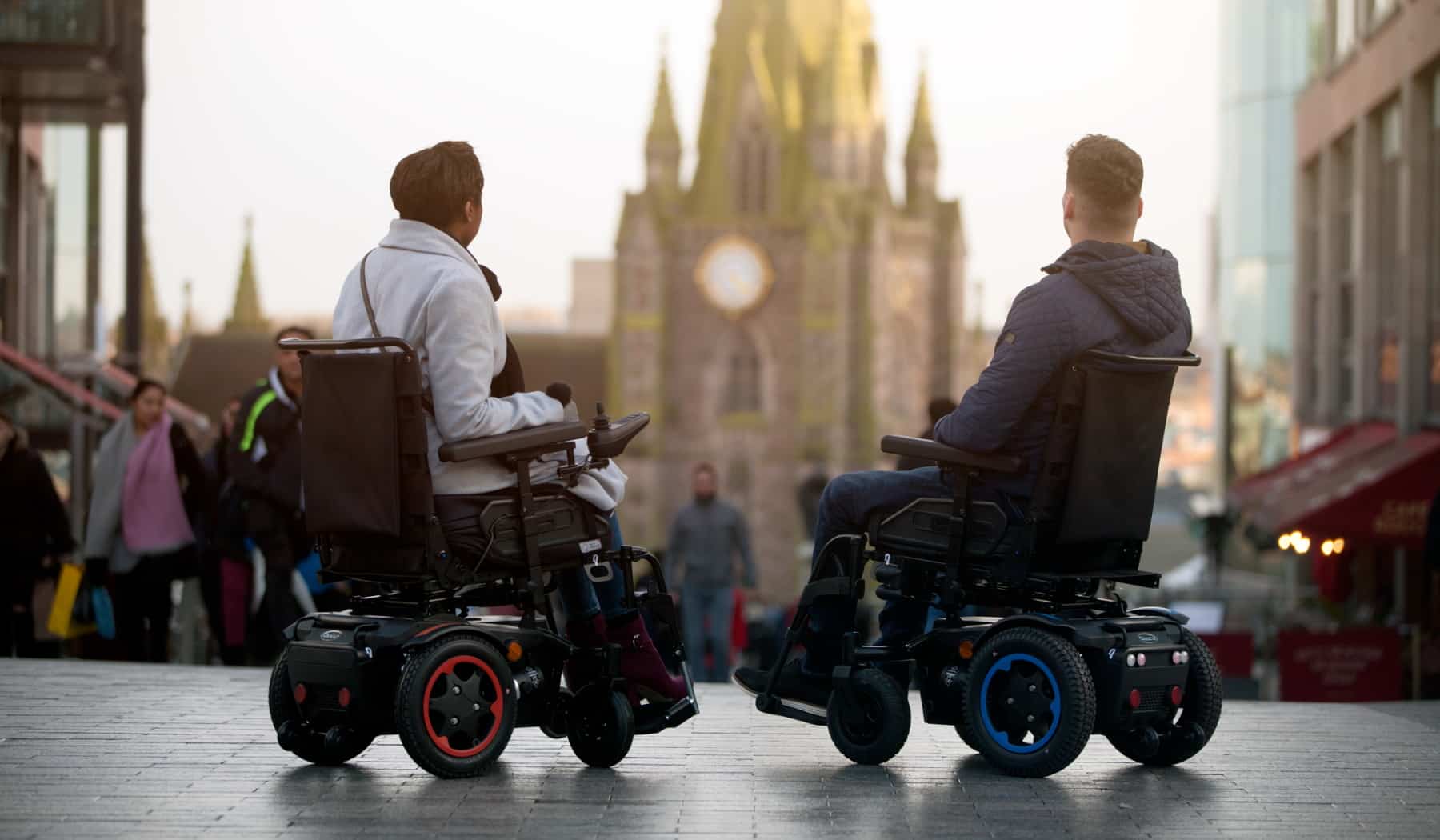
Life with spina bifida can bring a rollercoaster of emotions.
It’s okay not to be OK. Living with spina bifida presents unique challenges that can affect your emotional well-being. You might be feeling overwhelmed, anxious, frustrated, or even angry. These feelings are entirely valid.
At DisabilityPlus, we understand. Our spina bifida counsellors have lived experience and offer a safe and supportive space to explore your emotions, develop coping strategies, and build resilience.
We believe in your strength and are here to help you navigate life’s journey with confidence and hope.
Finding the Right Spina Bifida Counselling for You
At DisabilityPlus, we offer a safe and supportive space to explore your feelings and find ways to cope with the unique aspects of your journey.
Our spina bifida counselling services are tailored to your individual needs. Whether you’re struggling with:
Adjusting to life with spina bifida: We’ll help you navigate the emotional and social impact of spina bifida, build resilience, and develop coping strategies.
Body image and self-esteem: We’ll support you in fostering a positive self-image and embracing your inner strength.
Managing anxiety and depression: We’ll provide tools and techniques to manage overwhelming feelings and find more peace and joy.
Coping with physical challenges: We can help you develop strategies to manage pain, fatigue, and other physical symptoms.
Navigating relationships: We can offer support in communicating effectively with loved ones and building strong connections.
Finding independence and fulfilment: We’ll empower you to pursue your goals and live a meaningful life on your terms.
We offer a compassionate and non-judgmental space to explore your thoughts and emotions, develop coping mechanisms, and discover your inner strength.

Session Fees/Pricing
We believe everyone should have access to specilist spina bifida counselling. That’s why we offer reduced rates to the public, with sessions starting at just £50 for 50 minutes.
Our Fees:
Initial Session: £50
Following Sessions: £180 for every three sessions after that.
Payment Plans Available:
We understand that self-paying for therapy can be challenging.
If you need assistance, please contact us to discuss payment plan options.

Free Funding
We understand the financial challenges of living with a SB.
Disability Plus offers free funding application assistance for spina bifida counselling services in most of England and Wales.
See our criteria below to check your eligibility.
Criteria
Are you an adult (18+) living with spina bifida, residing in England or Wales and struggling to find the support you need?
We understand that navigating the healthcare system can be challenging, especially if NHS local mental health services have turned you away as too complex.
We’ll work with you to determine eligibility and then make a funding application for you, relieving your pressure.
While funding approval varies by region, we’ll explore every avenue and connect you with the most suitable resources if your NHS region does not support us.

Professional Referrals
We proudly collaborate with:
- Employment Support Companies
- Solicitors
- GPs
- Mental Health Providers
- Rehabilitation Centres
- Schools & Universities
- Charities
And many more Professionals & Organisations to ensure Comprehensive Care for our Clients.
Self-Refer
Self-Refer
Referrals
What Our Clients Say
Our counsellors understand the unique challenges of living with spina bifida because they’ve been there themselves. Hear from clients, carers, and partners about how our supportive and understanding approach has made a real difference in their lives.
“Talking to Verity about my anxiety really helped. I used to get so overwhelmed, but now I have ways to cope. I feel much better about myself.”
“Kevin helped me understand that it’s okay to feel angry sometimes. Living with spina bifida can be frustrating, but now I have healthier ways to deal with my anger.”
“I was struggling with depression after my surgery, but Susan helped me see the light at the end of the tunnel. I’m so grateful for her support.”
“My son has spina bifida, and I was struggling to cope. Kevin gave me the support I needed to be a better carer and to look after my own well-being too.”
“I used to feel so alone with my spina bifida, but talking to Verity made me realize I’m not. She gets it, and she’s helped me feel more confident.”
“My partner’s spina bifida was putting a strain on our relationship. Susan helped us communicate better and understand each other’s needs. We’re in a much better place now.”
“One of my employees was struggling with their mental health due to spina bifida.
They started seeing Verity for counselling, and the change has been remarkable.
They’re more engaged, confident, and productive. I highly recommend her services.”

Adjustment Disorder?
Adjustment disorder is a common reaction to stressful life events, and for individuals with spina bifida, the significant changes associated with the condition can trigger this condition.
Adjusting to the challenges of spina bifida, coping with emotional adjustments, and navigating social and practical changes can feel overwhelming, leading to symptoms like anxiety, low mood, and difficulty dealing with daily life.
Adjustment disorder in the context of spina bifida can manifest in various ways. Individuals may experience low mood, irritability, withdrawal from social activities, sleep disturbances, and difficulty concentrating.
They may also struggle with changes in mobility, social situations, and body image.
These symptoms can significantly impact their quality of life and interfere with their ability to adapt and thrive.
Spina bifida counselling provides essential support for individuals experiencing adjustment disorder.
Therapists can help individuals understand and process their emotions, develop coping strategies for managing stress and anxiety, and build resilience for navigating the challenges of spina bifida.
They can also help connect with support networks and resources to facilitate a smoother adjustment process.
By addressing adjustment disorder, spina bifida counselling helps individuals regain a sense of control, improve their emotional well-being, and successfully adapt to life with the condition.
Spina Bifida & Mental Health?
Ableism?
Ableism, or discrimination against people with disabilities, can significantly affect the mental health of those with spina bifida.
Spina bifida counselling is crucial in helping individuals navigate these challenges.
Ableism can appear in many forms, creating barriers in various areas of life.
For example, individuals with spina bifida may face discrimination in employment, inadequate support in education, and difficulty accessing healthcare or suitable housing.
They may also encounter inaccessible environments and negative attitudes that impact their daily lives.
These experiences can lead to stress, anxiety, and depression.
Spina bifida counselling provides a safe space to process these emotions and develop coping mechanisms.
It helps individuals build self-advocacy skills, challenge systemic issues, and foster resilience. It can also support managing changes in body image, relationships, and independence.
By addressing the impact of ableism and spina bifida, counselling empowers individuals to navigate their challenges and live fulfilling lives.
Perceptions?
How people perceive spina bifida can significantly impact the lives of individuals with this condition.
Misconceptions and lack of understanding can create barriers to accessing appropriate social services and employment opportunities and navigating education and healthcare.
These misperceptions can lead to discrimination, inadequate support, and lowered expectations, impacting self-esteem, financial stability, and overall well-being.
Social isolation and stigma can also arise from these negative perceptions, hindering social inclusion and contributing to mental health challenges such as anxiety and depression.
Spina bifida counselling provides a crucial space for individuals to address the emotional and psychological impact of these experiences.
It helps individuals develop coping mechanisms, build resilience, and advocate for their needs. It can also support managing changes in body image, relationships, and independence.
By challenging societal perceptions and fostering understanding, spina bifida counselling empowers individuals to navigate challenges and live fulfilling lives.
Health?
Health anxiety is a common experience for individuals with spina bifida.
Adapting to the condition, managing physical challenges, and navigating healthcare can trigger worries about future health, complications, and overall well-being.
Concerns about mobility, bowel and bladder function, secondary health conditions (such as hydrocephalus or urinary tract infections), and potential medical issues can contribute to heightened anxiety.
Spina bifida counselling provides specialised support in addressing these anxieties.
Therapists help individuals develop coping strategies, navigate challenges in accessing healthcare, and build resilience for managing uncertainties.
They can also support understanding the condition, managing symptoms, and adjusting to variations in physical abilities.
By addressing health anxiety, spina bifida counselling empowers individuals to focus on their well-being and improve their quality of life.
Loss of Autonomy
Loss of autonomy is a significant concern for many individuals with spina bifida, impacting their mental health and overall well-being.
This loss can stem from physical limitations, challenges with mobility, and societal barriers restricting independence.
Spina bifida counselling plays a crucial role in helping individuals cope with this loss and reclaim a sense of control over their lives.
It provides a supportive space to address the emotional impact of dependence on others for daily tasks, challenges in decision-making, and limitations in social or professional participation.
Counselling can also help individuals process feelings of grief, frustration, and loss associated with the challenges of spina bifida.
Therapists can help individuals develop coping strategies, enhance self-advocacy skills, and explore new avenues for independence.
They can also support adapting to new ways of doing things, accessing assistive technology, and advocating for accessibility.
By addressing the loss of autonomy, spina bifida counselling empowers individuals to navigate their challenges, build resilience, and live fulfilling lives.
Financial Strain
Financial strain is a significant concern for many individuals with spina bifida, impacting their mental health and overall well-being.
The costs associated with medical care, assistive devices, therapies, and potential home modifications can be substantial, leading to chronic stress and anxiety.
Unexpected expenses related to managing the condition can also contribute to financial burden.
Spina bifida counselling provides valuable support in navigating these financial challenges.
Therapists can offer strategies for managing financial stress, coping with the emotional impact of unexpected expenses, and advocating for financial assistance or affordable care.
They can also help adjust to changes in employment or explore alternative career paths if needed.
By addressing financial concerns, spina bifida counselling helps individuals focus on their well-being, reduce stress, and improve their quality of life.
Anxiety?
Anxiety is a common experience for many individuals with spina bifida.
The challenges of adapting to the condition, navigating healthcare, and managing physical and emotional changes can contribute to heightened anxiety levels.
Spina bifida counselling is crucial in helping individuals cope with these anxieties and improve their overall well-being.
It provides a safe and supportive space to address anxieties related to various aspects of life with spina bifida.
This can include concerns about managing symptoms, social interactions, employment, finances, healthcare access, and navigating mobility and independence changes.
Therapists can help individuals develop coping strategies, build resilience, and improve self-advocacy skills.
They can also help manage symptoms, adjust to assistive devices, and navigate relationships.
By addressing anxiety, spina bifida counselling empowers individuals to focus on their well-being, adjust to their circumstances, and live fulfilling lives.
Depression?
Depression is a significant concern for many individuals with spina bifida.
Living with spina bifida involves navigating numerous challenges, both physical and emotional, which can contribute to feelings of sadness, hopelessness, and a loss of interest in life.
These challenges may include coping with physical symptoms, adjusting to variations in mobility and independence, facing changes in body image, and navigating social and professional adjustments.
Several factors can increase the risk of depression in the context of spina bifida.
These include difficulties with mobility, challenges in accessing appropriate healthcare and support services, financial strain, and experiences of social isolation or stigma.
The emotional impact of spina bifida, including grief, anxiety, and trauma, can also contribute to depression.
Spina bifida counselling provides a safe and supportive space to address depression and its underlying causes.
Therapists help individuals process their emotions, develop coping strategies, and build resilience.
They can also assist in connecting with resources, improving self-esteem, and fostering social connections.
By addressing depression, spina bifida counselling empowers individuals to improve their mental health and overall well-being.
Relationships?
Spina bifida can significantly impact relationships, affecting the individual with the condition and their loved ones.
Partners, family members, and friends may experience a range of emotions, including worry, protectiveness, and uncertainty, as they adapt to these challenges alongside the individual.
Communication plays a crucial role in navigating relationships when spina bifida is present.
Open and honest conversations about needs, concerns, and expectations can help maintain healthy connections and foster mutual understanding.
Intimacy can also be affected by spina bifida, and addressing changes in physical intimacy and emotional connection is essential for maintaining strong and fulfilling relationships.
Spina bifida counselling can provide valuable support for individuals and their loved ones in navigating relationship challenges.
Therapists can help individuals communicate effectively, address intimacy concerns, and strengthen bonds with their partners, family, and friends.
They can also offer guidance on navigating social situations, building new relationships, and fostering a supportive network.
By addressing relationship concerns, spina bifida counselling helps individuals maintain strong connections and build fulfilling relationships.
Carers?
Caring for a loved one with spina bifida can be an enriching experience, but it also comes with unique challenges that can impact a carer’s well-being.
Carers often face emotional strain as they witness their loved ones navigate the physical and emotional challenges of the condition.
The demands of assisting with daily tasks, medical appointments, and emotional investment can lead to exhaustion and stress. Caregiving responsibilities may also limit social interaction and contribute to feelings of isolation.
Financial concerns, changes in family dynamics, and the need to advocate for their loved one can add further complexity to the carer’s experience.
Spina bifida counselling offers valuable support to carers facing these challenges.
It provides a safe and supportive space to process emotions such as worry, sadness, and even feelings of grief or loss.
Therapists can offer practical guidance on caregiving techniques, navigating resources, and managing the daily demands of caring for someone with spina bifida.
They can also offer advice on understanding the condition, managing symptoms, and accessing appropriate support services.
They can also connect carers with respite care options, allowing for essential breaks and self-care.
Furthermore, spina bifida counselling can help carers navigate relationship changes, set boundaries, and maintain healthy communication with their loved ones.
Support groups provide opportunities to connect with others facing similar challenges, fostering a sense of community and shared understanding.
By addressing the unique needs of carers, spina bifida counselling helps them maintain their well-being, strengthen their relationships, and provide the best possible support to their loved ones.
Grief/Loss?
Grief is a natural and complex response to loss, and for individuals with spina bifida, this grief can be particularly profound.
The condition can represent not only a physical challenge but also a loss of function, changes in mobility, and a shift in the life one anticipated.
This can trigger intense emotions, including sadness, anger, frustration, and loss.
The grieving process for individuals with spina bifida is unique and personal.
It can be influenced by factors such as the severity of the condition, the individual’s support system, coping mechanisms, and personal experiences.
Grief may manifest in different ways, including physical symptoms like fatigue and sleep disturbances, emotional changes like mood swings and irritability, and difficulties with concentration or motivation.
Spina bifida counselling provides a safe and supportive environment for individuals to navigate their grief journey.
Therapists can help individuals understand and process their emotions, develop healthy coping strategies, and find meaning and acceptance in their experiences.
They can also support managing changes in body image, relationships, and independence and help individuals build a positive sense of self and future.
Counselling can also help address any emotional challenges related to the condition and facilitate the process of creating a fulfilling life.

Find the Right Support for Your Journey
At DisabilityPlus, we understand that every individual’s mental health journey is unique. That’s why we offer comprehensive counselling services designed to cater to your specific needs.
Click & Select your counselling service
Specialist Spina Bifida Mental Health Counselling Services

We believe that there are no boundaries to progress and success. We support & acknowledge all backgrounds, identities, and walks of life in treatment.
Our counsellors provide an environment for you to engage in valuable interpersonal work while developing practical strategies to use daily.
We strive for a warm, inviting, and collaborative community designed to help you work through the barriers that hold you back while making positive changes to live your best life.
Our Counselling & Psychotherapies start from the baseline & contributing factors of living with spina bifida is creating the issues you may be facing.
We know that most people we see do not have mental health conditions; they have emotional stressors & issues subjected to stigma, social isolation, visible & invisible discrimination, limited opportunities and relationship problems in general.
These are vital issues many people with spina bifida face daily.
We all need a listening ear and a level of empathy from time to time for when life throws at us its testing challenges.
One of the most important aspects of counselling & psychotherapy is the relationship you form with your therapist.
Therapists with Spina Bifida will help you experience a sense of belonging and connection, as they will have similar challenges.
⇒ Specialist Acreditated & Registered Psycologists & Psychotherapists.
⇒ You can choose a Counsellor with SB or a specialist who does not. It’s your choice.
⇒ Our Counselling comes from Lived Experiences, not a Text Book or Training Course.
⇒ We can support people who use assistive communication devices.
⇒ Culturally accessible counselling with quicker recovery rates than therapy with a counsellor who does not understand SB.
⇒ Free Funding Applications for people over 18 within most regions of the UK. Contact us to find out more.
⇒ Heavily subsidised self-paying plans with no waiting list for people 14 & over.
⇒ Video & telephone counselling to ensure you can connect with specialists wherever you live.
So, if you’re struggling in any way right now, please get in touch with us.
Enquiries
Self-Pay
Free Funding

We support people, not with the labels of depression or anxiety; our work is helping clients with life's difficulties that can be the platform for mental health issues.
We help with the following:
- Coping with the rollercoaster of emotions
- Exploring your feelings & thoughts
- Understanding of how difficulties may have developed
- Management of pain
- Dealing with different stresses
- Concerns about anger and how it’s affecting those around you
- Dealing with distress and trauma
- Concerns about relationships
- Setting realistic & achievable goals

As a specialist service, we support people with counsellors who understand the key components of Spina Bifida
Counsellors will help you experience a sense of belonging and connection as they will understand the different types of SB
• Closed Neural Tube Defects
• Occulta
• Meningocele
• Myelomeningocele
We strive for a warm, inviting, and collaborative community designed to help you work through the barriers that hold you back while making positive changes to live your best life.
Questions?
Online Sessions – we offer video sessions, why?
There are few counsellors that specialise in supporting people with SB. By offering video sessions, we can help you wherever you live.
What to expect? – your counsellor will understand the issues you may be facing, each person is different, however, with spina bifida counselling, common themes are talked through.
Therapy – we usually would offer counselling that supports resolutions of your current issues and future planning. Some people prefer a longer, deeper form of psychotherapy.
We support both modes of counselling.
When can I start counselling? – if you are paying for sessions yourself, sessions would start generally within a fortnight.
If you wanted NHS funding, we would make an application following a free assessment session.
No NHS funding application is guaranteed to be successful, and the timeframe is normally between 8 and 12 weeks.
We pride ourselves on providing safe and compassionate counselling where all individuals, regardless of cultural, gender or sexual identity, can receive equitable mental health services and support.
So, if you’re struggling in any way right now, don’t hesitate to contact us.
Knowledgable?
Living with Spina bifida can be emotionally stressful for some individuals. Spina bifida is a congenital birth defect that affects the spine and can result in various physical and neurological impairments.
Depending on the severity of the condition, individuals may experience mobility difficulties, bowel and bladder problems, and other health issues that can impact their daily lives.
The emotional stress of living with Spina bifida can stem from a variety of factors, including:
Stigma and discrimination: Some individuals with Spina bifida may experience stigma or discrimination from others unfamiliar with the condition. This can lead to feelings of isolation, shame, or anxiety.
Physical limitations: The physical limitations associated with Spina bifida may make it difficult for individuals to participate in activities they enjoy, which can be frustrating and upsetting.
Chronic pain: Many individuals with Spina bifida experience chronic pain, which can be physically and emotionally draining.
Anxiety and depression: Living with a chronic health condition can increase the risk of developing anxiety and depression. Individuals with Spina bifida may experience sadness, hopelessness, or worthlessness.
Social isolation: The physical limitations associated with Spina bifida may make it difficult for individuals to engage in social activities, leading to loneliness or isolation.
It’s essential to recognise that everyone’s experience with Spina bifida is unique, and not all individuals will experience the same level of emotional stress.
Referrals?
As a specialist service with a wealth of experience, we can support organisations and private people with excellent Spina Bifida Counselling and Psychotherapies.
Services for
♣ Individuals
♣ Couples
♣ Care-Givers
♣ Family Members
♣ Friends
Professional Organisations
♣ National Health Services
♣ Mental Health Providers
♣ GPs
♣ Universities & Schools
♣ Solicitors & Courts
♣ Insurance Companies
♣ Businesses
Session Fees?
We offer privately-paid services from age 14.
Private pay clients are able to choose the focus, duration, and frequency of therapy.
Clients are even allowed to choose the length of sessions. Research shows that clients who have to pay something for their treatment have more positive outcomes than those who receive free treatment.
Individuals can start their Spina Bifida Counselling almost immediately.
There are no waiting lists or reports being sent to GPs. It’s Confidential.
Pricing
For the general public, we heavily discounted our session fees. This enables them to access counselling easily at an affordable price.
Session Fees for 50 minutes:
♣ Initial Session £50
♣ Pay as you go £70
♣ Saver3 £180 (3 Sessions)
For those who use assistive communication devices, session times move from 50 to 70 minutes with a session fee of £90 & saver pack of 3 sessions at £220
Some people may find that self-paid is just out of reach if this is the case let us know and we can generally help with a payment plan.
Free funding?
Usually, your GP will refer you to the local IAPT mental health service if you ask for support; this would normally be because they are unaware of DisabilityPlus.
We can apply for specialist counselling if you have one or more of the following:
⇒ You have been discharged from the local NHS service as unsuitable for their counselling.
⇒ You have been recommended to see a Specialist Spina Bifida Counselling Service.
⇒ You have one or more issues around grief or addictions.
⇒ You use a communication device.
⇒ You are affected by one or more conditions, including Swallowing, Speech, Vision, Hearing, Learning Difficulties or Quadriplegia.
⇒ There are some other exceptional circumstances you can tell us about.
⇒ The severity and additional issues of Spina Bifida can be classed as exceptional circumstances.
Talk to us to see if you qualify for a free funding application or self-refer to start the funding process.
If applying for free funding, the first session is free.
This session is an assessment; it’s the foundation to enable us to make the application with a first-class treatment plan specific to you or the client.
Free funding applications are based on your complex needs & exceptional circumstances.
Free funding cannot be guaranteed, and every case is based on its own merits.

Our Specialist Services
Click to Select






